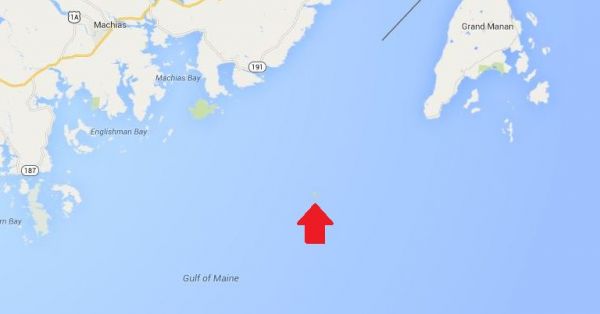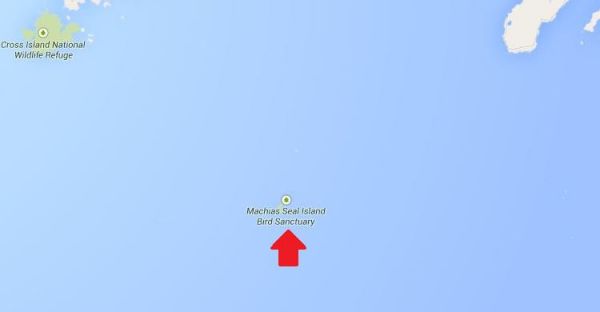An Ongoing Border Dispute Between the United States and Canada
This is Machias Seal Island, a 20-acre island in the Bay of Fundy.
You can't see it? Let's zoom in.

Hmm. That doesn't help much. Let's zoom in some more.

There it is! It's a speck of land that barely appears on the map.

...and lots and lots of puffins.
The
ownership of Machias Seal Island is disputed by the United States and
Canada. Canada is in physical possession of it, but the United States
has not formally dropped its claim to the island.We've previously written several posts about the development of the US-Canadian border, which includes weird exclaves. Ambiguity about the border even led to the creation of 2 short-lived nations.
(Painting by Benjamin West of the American delegation at the Treaty of Paris)
Although
the United States and Canada now maintain a long, peaceful border, the
placement of that border has been in doubt since the Treaty of Paris
(1783) in which Britain recognized the United States as an independent
nation. That treaty attempted to draw borders over unexplored lands. The
authors did the best that they could with their knowledge of geography.
But, alas, one of the descriptions for the border between Maine and
maritime Canada was problematic. The treaty says that US territory
includes:all Islands within twenty Leagues of any Part of the Shores of the United States, and lying between Lines to be drawn due East from the Points where the aforesaid Boundaries between Nova Scotia on the one Part and East Florida on the other shall, respectively, touch the Bay of Fundy and the Atlantic Ocean, excepting such Islands as now are or heretofore have been within the limits of the said Province of Nova Scotia.
As we've mentioned in a previous post, the eastern border of Maine was of great concern to the British. Some British officials coveted what Americans saw as their territory, and vice versa. Control of the Bay of Fundy was of great importance to British commissioners at the Treaty of Ghent (1814), which ended the War of 1812.

No comments:
Post a Comment